Palabras clave:
Deshidratación, mujer, fuerza, judo, luchaResumen
El propósito de este estudio fue analizar qué variables, tanto de composición corporal como de fuerza, se veían afectadas, al utilizar métodos de deshidratación para llegar al peso de competición en mujeres deportistas (n=19) de dos deportes de combate, en tres momentos diferentes de la temporada de entrenamiento: etapa base, específica y precompetitiva. Los deportes practicados eran lucha libre (n=11) y judo (n=8). Las herramientas utilizadas para la evaluación fueron: Inbody 230, para las medidas de composición corporal; e Isocontrol 5.0, para las variables de fuerza. Los resultados mostraron que tanto en la etapa específica como en la precompetitiva, las deportistas entrenaban en situación de carencia hídrica en ambas modalidades deportivas, siendo las variables de fuerza más perjudicadas: la fuerza máxima y la potencia; y dentro de las variables de composición corporal, el peso, el porcentaje de agua y grasa corporal.
Las conclusiones de esta investigación proponen realizar un protocolo de pérdida de peso razonado en función de los objetivos planificados en el entrenamiento para evitar perjuicios en los microciclos de puesta a punto, competición e incluso en la propia salud de las deportistas.
Descargas
Citas
Da Silveira, F. (2006). El efecto de la deshidratación en el rendimiento anaeróbico. Revista de la Ciencia del Ejercicio y la Salud. 4 (1). 13-21
Dossil, J.(2004). Psicología de la actividad física y el deporte. Editorial McGraw-Hill. Madrid.
Franseen, L.M. (1997). Environmental preassures, personality factors and their relationship to eating disorders in elite female athletes. Dissertation Abstracts International Section B: The Sciencie and Engineering. Vol. 57 (7-B).
García Manso, J.M. M. Navarro & J.A. Ruíz. (1996). Bases teóricas del entrenamiento deportivo, principios y aplicaciones. Editorial Gymnos.
Madrid.
Iturriza, E. X Ulaiza; J.L Zunzunegui & J.M. Román.(1995). La hidratación del deportista. Instituto de deportes, Departamento de Cultura, Diputación Foral de Álava. 200-238.
Márquez, S. (2008). Trastornos alimentarios en el deporte: factores de riesgo, consecuencias sobre la salud, tratamiento y prevención. Nutrición Hospitalaria. 23 (3). 183-190.
Murray, B. (2007). Hydration and physical performance. Journal of American College of Nutrition. 26 (5). 542s-548s.
Rouveix, M. (2007). Eating attitudes, body esteem, perfectionism and anxiety of judo athletes and nonathletes. International Journal of Sport Medicine. 28 (4).340-345
Silva, A.M. D.A Fields. S.B Heymsfield & L.B Sardinha. (2010). Body composition and power changes in elite judo athletes. International Journal of Sport Medicine, 31.737-741.
Sundgot-Borgen, J & Torstveit, M. (2004). Prevalence of eating disorders in elite atlethes is higher than in the general population. Clinical Journal of Sport Medicine. 14 (1). 25-32.




